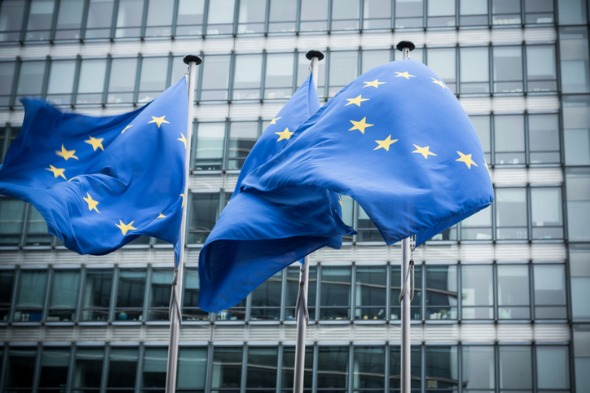In a recent Policy and Regulatory Report (PaRR), Carmen Perales provides a balanced overview of the European Parliament's proposed resolution by industry experts, including Deminor Partner and Chief Investment Officer, Charles Demoulin.
This legal analysis was first published by ION Analytics on 13/12/2022.
Background
European Parliament (EP) resolution seeking an EU regulation for litigation funding has met with criticism from four experts in European damages claims stemming from competition infringements.
Two experts said that Europe has been untroubled by litigation funding issues in the past, while a third considered the EP initiative untransparent and lacking an open consultation.
In September, the EP issued a resolution saying that litigation funding is an expanding but largely unregulated EU practice, despite containing risks.
In litigation funding, third-party private investors pay the expenses of legal proceedings in exchange for a share in the potential award. Damages suits stemming from antitrust breaches are just one type of action for which such funding is used, other examples being arbitration, insolvency proceedings or collective redress.
Collective redress was already addressed in directive 2020/1828, which must be implemented by member states before 25 June 2023. This directive laid down safeguards relating to litigation funding, but these are limited to representative actions on behalf of consumers within the scope of that directive, the EP said.
The EP requested the EC to closely monitor litigation funding in member states, both in terms of legal framework and practice. After the expiry of the deadline for implementing the directive, the EP asked the EC to submit a proposal for a directive to establish common minimum standards on litigation funding.
The European Parliament and Commission
Peter Gussone of GQL Rechtsanwälte told PaRR that the EP text appears unlikely to succeed. The European Commission (EC) does not seem very interested in regulating litigation funding, according to the lawyer.
Gussone defends plaintiffs for damages claims in Germany related to trucks, pesticides, and sugar antitrust cases, and recognises that litigation funding is important for these lawsuits.
He noted that the relevance of litigation funding has significantly increased in Germany in the last decade, and that claimants shouldering the financial risk of an action are now the exception rather than the norm.
The lawyer considers that the EP seems to have the “uneasy feeling” that there is some sort of abuse in litigation funding with lack of transparency or control. However, Gussone says he is not aware of any problems in Germany arising from litigation funding.
There is no great need for protection when claimants are big companies, since these can negotiate with litigation funders on an equal footing, the lawyer observed. For consumers who do not have financial resources for litigation, perhaps there might be a need for more transparency, Gussone added.

"We have been active for 30 years and until now we have seen no failure"
Deminor's View on the Litigation Funding Market
Charles Demoulin, chief investment officer in litigation fund Deminor, considers that the EP resolution is based on wrong assumptions and a lack of understanding of how the litigation funding market works. “We have been active for 30 years and until now we have seen no failure,” he said.
According to Demoulin, who is also director of the European Litigation Funders Association (ELFA), the EP said that there is a risk but without providing concrete evidence. He noted that in the interests of efficiency regulations should address societal needs, but that the need appears rather theoretical here.
He noted that it is too early to know how the collective redress directive would be implemented, since the deadline for transposition is next year. Afterwards, the EC needs to review how the implementation worked before thinking about a new directive on litigation funding, Demoulin added.
He cited an analysis conducted by Deminor concluding that the litigation funding market is relatively small, with a total investment potential worldwide of USD 11bn - the value of the global legal industry is estimated to be worth USD 850bn - of which Europe (UK included) accounts for only 16%, he said.
“It is important to put things into perspective and not to exaggerate the importance of the industry in Europe,” Demoulin observed.
Transparency within the European Parliament
Till Schreiber, managing director of Cartel Damage Claims (CDC), considers that the EP resolution has not been very transparent and that it is not the product of an open consultation process involving the relevant stakeholders.
CDC has been operating for 20 years providing the service of managing and enforcing bundled claims following competition infringements. It undertakes a legal assessment, the economic analysis and prepares the enforcement actions, while also collaborating with litigation funders, he explained.
Schreiber does not consider that CDC is concerned by the EP resolution, since it is rather a service provider. Additionally, it mainly works with companies and not consumers, he added.
Schreiber suggested the only beneficiaries of such a regulation would likely be defendants "nervous" of a number of recent consumer claims brought, such as the diesel emissions scandal.

"We have always promoted a system that cannot be misused and that brings more fairness to consumers"
Legitimate Safeguarding
Thierry de Bovis, director of Equity Claims Lux, said that a regulation would not necessarily be a bad thing and that it might be positive to have some safeguards, while it could have the positive effect of legitimising the litigation funding business. However, de Bovis warned that creating a very tough regulation could also kill the market.
Equity & Claims Lux provides consulting and management services helping investors to identify opportunities in litigation assets. The company deals with around 30 litigation funders, both from Europe and the US.
De Bovis also found that the resolution appeared to confuse litigation funding with collective redress for consumers. However, in most cases, litigation funding happens in a business-to-business relationship, and concerns highly sophisticated companies, he said.
According to de Bovis, if a regulation poses difficulties for litigation funding, parties will flee from EU countries to litigate in places such as Switzerland, the UK, or the US.
As an example, he cited the case of France. The country has a law for collective redress that “does not work”, he claimed, because there is no funding, since it imposes excessive obstacles, such as the obligation to be represented by associations that do not have the financial power to litigate.
Concerns of the European Commission
A spokesperson for the EC told PaRR that it “shares the concerns” raised in the EP resolution and agrees that developments related to litigation funding “need to be closely monitored and analysed”.
As requested by the EP, the EC will look into the legislation and practices of member states to assess if they have appropriate mechanisms to “prevent, combat and sanction the potential negative phenomena” linked with litigation funding, after the entry into force of the collective redress directive in June 2023, according to the spokesperson.
The spokesperson added that, thanks to several safeguards, the EU’s representative actions are different from US-style class actions. “We have always promoted a system that cannot be misused and that brings more fairness to consumers,” the spokesperson said.
Under the EU representative actions system, qualified entities representing consumers have strict obligations of transparency regarding the origin of the funds they use for their activity, the person added.
by Carmen Perales in Brussels






